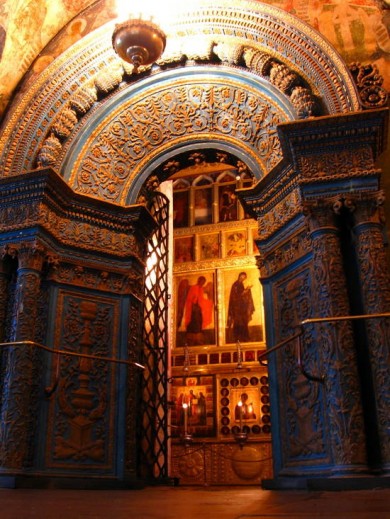An expanded Seraphic Fire delves deep in Rachmaninoff’s “Vespers”

When the members of Seraphic Fire filed into a Key Biscayne church Thursday evening for their opening concert of the season, the most striking thing was how numerous they were.
Regulars at the choir’s performances are accustomed to seeing a dozen or so singers, often stepping forward for solos before retreating back into the group. But for this gorgeous and rousing performance of Rachmaninoff’s Vespers—or All Night Vigil—at St. Christopher’s by the Sea, artistic director Patrick Dupré Quigley assembled 25 singers, with a resulting sonority that was notably richer, deeper, and darker.
Rachmaninoff’s 1915 work, premiered in Moscow to raise money for war relief, consists of settings of Eastern Orthodox hymns, as well as several melodies of his own. The Vespers bears little resemblance to the composer’s piano and orchestral works, being a blend of old and new as he surrounds traditional hymns with complex Romantic harmonies.
The work is known for requiring the basses to reach the lowest note in the choral literature, a B flat that’s a whole step below the lowest note of the cello. This comes in the fifth movement, Nynye Otpushchayeshi, or Now Let Thy Servant Depart, from the Book of Luke. At the end of the movement, the basses begin a descending scale that reached as low a note as seems possible to sing, and then they kept going, until they reach the B-flat. The Seraphic basses made it, and the notes were sung, not choked out, but it was clear that it was not without some effort.
But beyond the subterranean vocal effects of that movement, bolstering the choir’s low voices as well as additional singers to handle Rachmaninoff’s elaborate choral writing, gave the group a far different tone. Some of the choir’s trademark clarity and tonal purity was sacrificed, as climaxes in movements such as Hvalite Imya Gospodne achieved the sort of muddy grandeur more often associated with larger, less discriminating choruses.
But, in general, the extra singers, and in particular, the basses, enriched the ensemble. In just one example, in the setting of the psalm Blagosloven Yesi, Gospodi, the higher voices open with a traditional Orthodox chant. Then the basses enter and hold a pedal point—again very, very low—as the higher voices ascend. Brilliantly executed, the passage achieved its effect in a musical depiction of the Resurrection.
Before each movement, the bass-baritone and chorus master James Bass, a former Ukrainian Orthodox cantor, intoned a passage from the Orthodox Easter service. He did this, he explained after the concert, as an unobtrusive way of setting the pitch for each movement, but the effect was evocative, too, of a world of candlelit icons and bearded priests swinging buckets of incense.
Tenor Bryon Grohman brought a warm, focused tone to his solos in Vespers, as well as to the work that opened the program, Blazhen razumevayay na nischscha i uboga, by Alexander Arkhangelsky, a late Romantic Russian composer of church music.
Seraphic Fire performs Rachmaninoff’s Vespers Friday at 7:30 p.m. at First United Methodist Church of Coral Gables; Saturday at 8 p.m. at All Saints Episcopal Church, Fort Lauderdale; and Sunday at 4 p.m. at Miami Beach Community Church. Call 305-285-9060 or go to seraphicfire.org.
Posted in Performances
Leave a Comment
Fri Oct 1, 2010
at 1:40 am
No Comments




